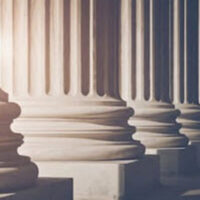Supreme Court Rules On Discharging Debts Incurred Through Another Party’s Fraud

If you file for bankruptcy, are you eligible to have debts discharged that were incurred as a result of somebody else’s fraud? This was the question that the U.S. Supreme Court had to consider in Bartenwerfer v. Buckley (2023). The case involved a debt incurred by a debtor as a result of her spouse’s fraud. In filing for bankruptcy, that debtor sought to have the debt discharged in her bankruptcy case, arguing that she had incurred the debt without any culpability of her own. The case was argued in December 2022, and the Court issued its decision in February 2023. Our West Palm Beach bankruptcy lawyers can provide you with more information about the case, the Court’s decision, and the implications of the case on future personal bankruptcy cases in South Florida.
Details of Bartenwerfer v. Buckley
The case of Bartenwerfer begins when two spouses, Kate and David Bartenwerfer, decide to remodel a house they owned jointly in order to sell the house. According to the Court’s decision, “Kate remained largely uninvolved” in the removal, while “David took charge of the project.” After selling the house, the buyer discovered defects and filed a lawsuit against the Bartenwerfers, which the buyer won. As a result, both Kate and David owed a debt from the judgment.
Kate filed for bankruptcy individually and argued that she should be able to have the debt discharged because, although it was incurred as a result of fraud, she was not culpable for the fraud. Rather, she was only legally responsible for the debt as a joint owner of the property that was remodeled and sold.
Understanding the U.S. Supreme Court’s Ruling
According to the Court’s opinion, the U.S. Bankruptcy Code precludes [a debtor] from discharging in bankruptcy a debt obtained by fraud, regardless of [the debtor]s] own culpability. The case was actually a unanimous, or 9-0 decision, meaning that there was no disagreement between or among justices concerning the decision in the case. Accordingly, it is unlikely that there will be reason for the ruling to shift in the future unless the U.S. Bankruptcy Code is amended.
What does this mean for debtors in South Florida who are filing for bankruptcy? For most debtors, the decision in this case will not have an effect since most debtors are not attempting to have debts discharged that were incurred as a result of fraud. Yet it is important to know what to expect if you are planning to file for bankruptcy and do have one or more debts incurred by the fraud of another party, such as a current or ex-spouse. In short, those debts will not be dischargeable in your bankruptcy case according to the decision in Bartenwerfer.
Contact a West Palm Beach Bankruptcy Attorney
If you have any questions about debts that are dischargeable in a bankruptcy case, or if you have specific concerns about the dischargeability of a particular debt if you were to file for bankruptcy, you should seek help from a lawyer at our firm. One of the experienced West Palm Beach bankruptcy attorneys at Kelley Kaplan & Eller will be able to answer questions you have and can provide you with more information you need to get started on your bankruptcy case.
Source:
https://www.supremecourt.gov/opinions/22pdf/21-908_n6io.pdf



